Madhya Pradesh is a state in central India noted for its rich culture, customs, and heritage. Folk dance, which reflects the diversity and depth of the state’s businesses and ceremonies, is an important component of its cultural legacy. Madhya Pradesh’s folk dance is an important element of the state’s social and cultural fabric and a means of communication and expression for the people of the state. Kindly read the below article to get insights on the Folk Dances of Madhya Pradesh with Pictures.
Table of Contents
Important Folk Dances of Madhya Pradesh
Check the important Folk Dances of Madhya Pradesh below the given table.
| Dance Form | Description |
|---|---|
| Muria Dance | The Muria Dance is a traditional folk dance performed by the Muria tribe in the Bastar region of India. It is characterized by rhythmic footwork, graceful movements, and intricate hand gestures. The dance is usually performed during harvest festivals and other celebrations, and it often depicts scenes from nature and daily life. |
| Gonda Dance | The Gonda Dance is a traditional dance form of the Gond tribe, who primarily inhabit the central parts of India. It is performed during various social and religious occasions and is known for its energetic movements and vibrant costumes. |
| Jawara Dance | The Jawara Dance is a traditional dance form performed by the Jawara tribe in the state of Chhattisgarh, India. It is primarily associated with the agricultural practices of the tribe and is performed during the sowing and harvesting seasons. The dance is performed by both men and women, who wear colorful costumes adorned with beads and shells. |
| Saila Dance | The Saila Dance is a traditional dance form originating from the Sambalpur region in the state of Odisha, India. It is performed by the tribal communities, particularly the Kisan tribe, during religious festivals and social gatherings. The dance is characterized by graceful movements, intricate footwork, and the use of props such as sticks and bamboo poles. |
Folk Dances of Madhya Pradesh with Pictures
The state’s folk dance reflects the diversity and unity of its people, and it has a unique identity that sets it apart from other regions of India. You can check the Folk Dances of Madhya Pradesh from below.
Jawara
This dance is performed by the people of Bundelkhand to celebrate wealth. Jawara, originally a charming dance, follows the reaping of customs, dance, and revel together, synchronizing their movement to a variety of musical instruments while dancing, and the ladies also balance baskets filled with Jawara on their heads while dancing. It’s difficult not to notice the poise of the women as they maintain Jawara’s quick dancing movements.
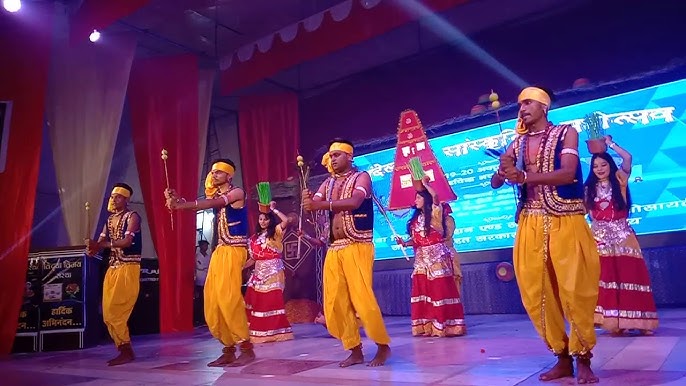
Tertali
Tertali is a Kamar folk dance from Madhya Pradesh. Two or three ladies from the tribe sit on the ground and begin the dance performance. A little metal cymbal known as ‘Magiras’ was tested on various regions of the body. They also hold a cymbal in each hand and strike it in time. The top is still draped with a veil. They bellow the boat of the dance while gnashing a tiny blade between their teeth and balancing a pot on their heads.
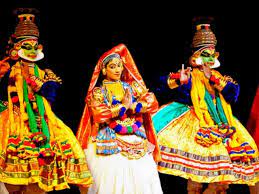
Ahiri
Gwalior’s ranchers may be known for their Ahiri dance. The dance also has religious overtones because the numerous communities of Gwalior who performed it are Lord Krishna’s descendants. Ahiri is commonly performed by members of the Ahir, Gwala, Rawat, Beat, and Baredi communities. The Ahiri community is the most ardent supporter of this cultural and religious event. Yadav or Baredi Dance Baredi is an important Gwalior District traditional dance.
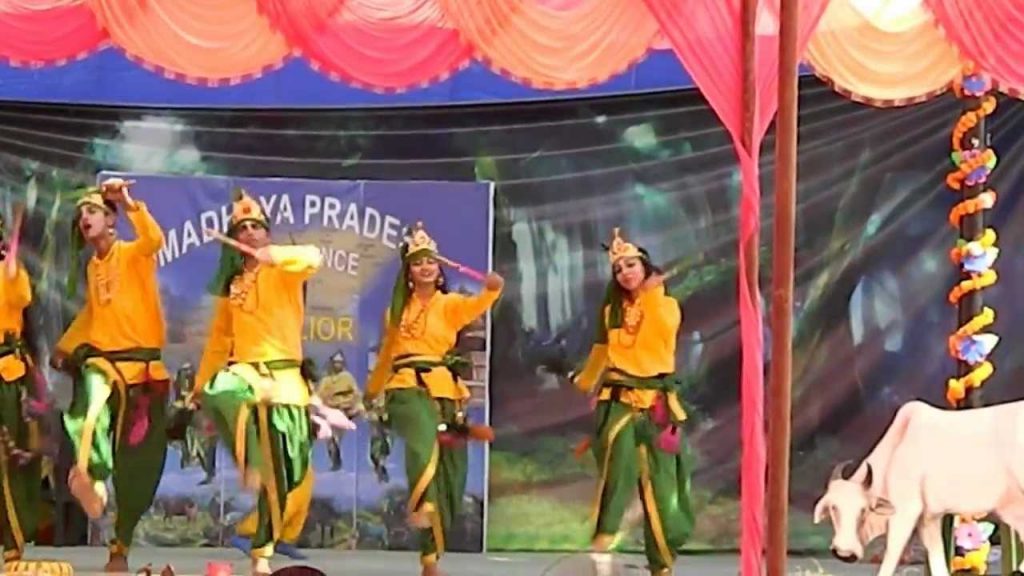
Gaur
The Gaur dance of the Sing Marias or Tallaguda Marias of South Bastar is the most well-known Madya Pradesh dance. This beautiful dance represents the tribe’s hunting passion. The word ‘gaur’ refers to a vicious bison. A bamboo trumpet or horn is used to signal the start of a dance. The lad’s folk make their way to the dancing arena, wearing headdresses frilled with stringed ‘cowries’ and plumes of peacock feathers affixed to them.
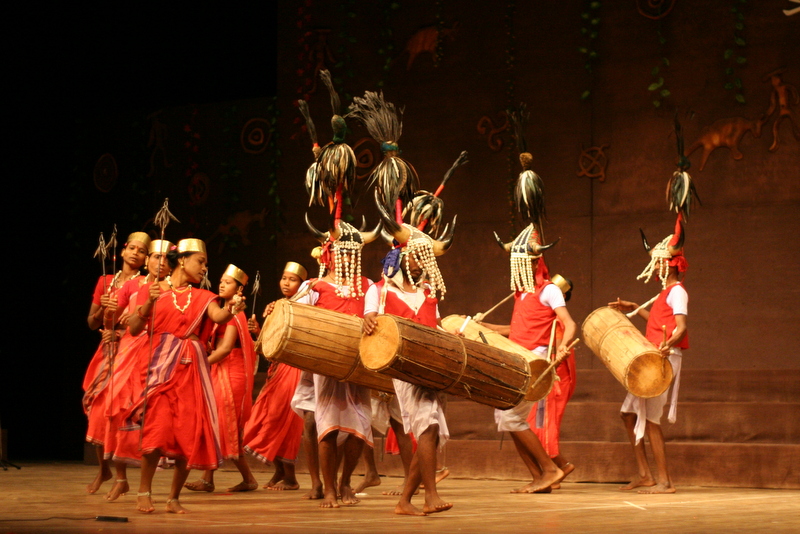
Muria
The Murias received training in the Ghotui for all of their communal locations. The Murias revere their drums before beginning any dance at a wedding or a festive occasion. They frequently begin with an invocation to ‘Lingo pen,’ the tribe’s phallic deity and hence the institution’s originator. To a Muria, Lingo Pen was the major musician who taught the tribe lads the technique of drumming.
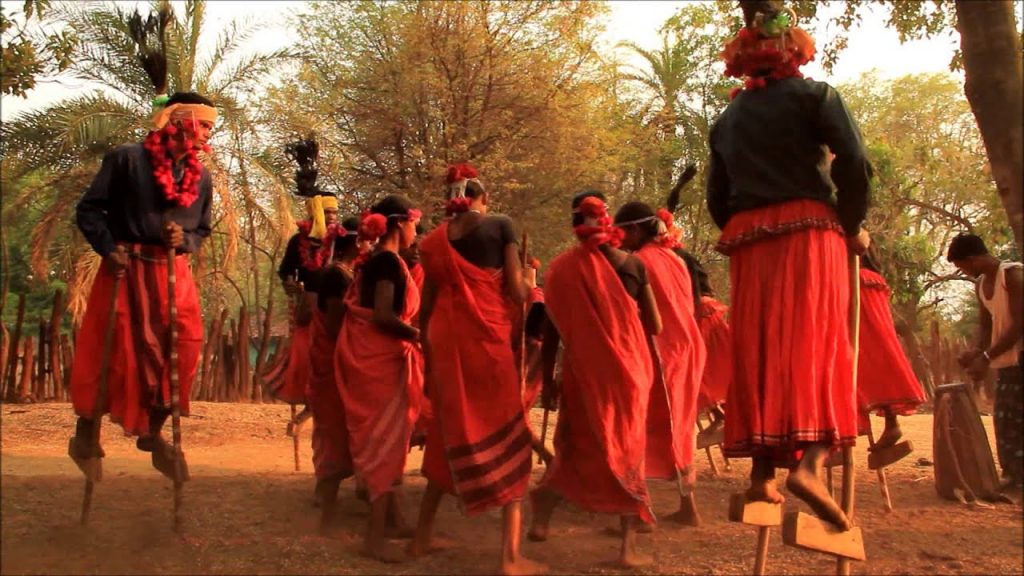
Saila Dance
The Saila dance, performed by young boys from Chhattisgarh’s lain, brings the post-harvest season to alive. Saila is a stick dance that is famous in the regions of Sarguja, Chhindwara, and Baitui. However, in some locations, Saila is known as DandaNach or Dandar Pate. The dancers will sometimes create a circle, each standing on one leg and sustaining himself by holding on to the person in front of him. Then they all jump together round and round. They occasionally form a pair or go round during a single or double line, occasionally climbing on each other’s back.
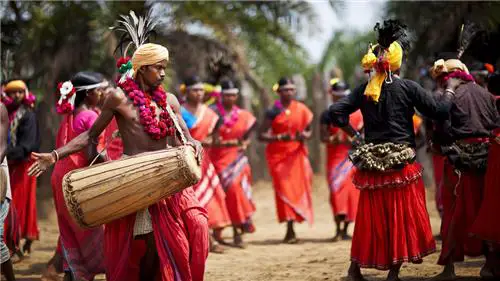
Karma Dance
The Karma dance is highly popular among the Gonds, and hence the Baigas of Chhattisgarh and the Oraons of Madhya Pradesh’s northwestern outskirts. This type is associated with the fertility cult and is fundamentally related to the August Karma festival.
The Karma dance represents the arrival of green forest branches in the spring. A tree is sometimes set up in the village and people dance around it. The dance was densely packed with tree breath.
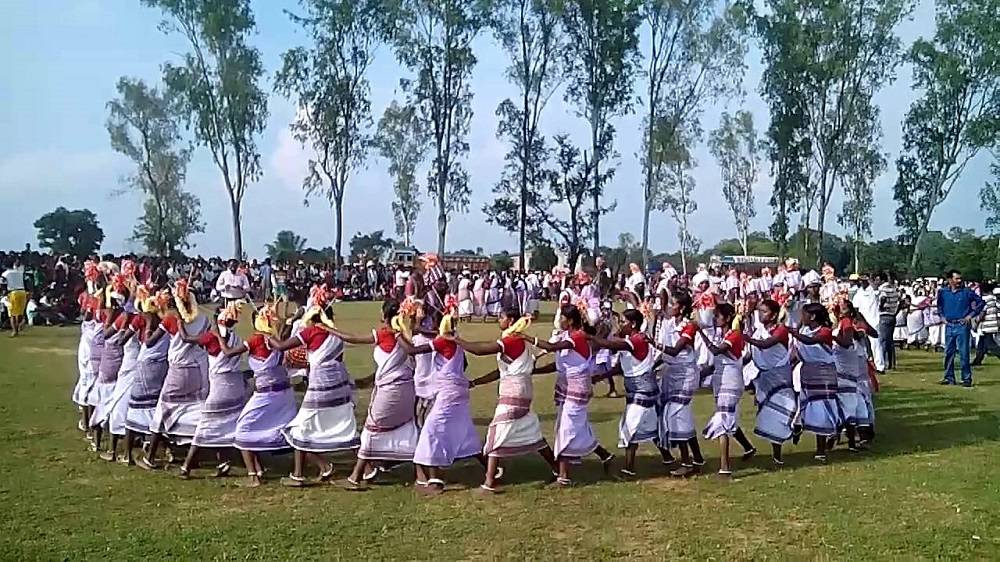
Folk Dances of Madhya Pradesh FAQs
Madhya Pradesh, a state in central India, is known for its vibrant and diverse folk dance forms. Some of the famous folk dances of Madhya Pradesh include the gonda dance, karma dance,muria dance,etc.
Yes, Madhya Pradesh folk dances often have distinctive costumes and props associated with them.
Yes, Madhya Pradesh folk dances are often accompanied by traditional musical instruments. Some commonly used instruments include dholak,nagada,shehenai, etc.
Yes, there are several platforms and competitions where individuals and groups can showcase their talent in Madhya Pradesh folk dances. These platforms provide an opportunity to perform in front of a wider audience and receive recognition for their skills.
Absolutely! Madhya Pradesh folk dances are not limited to the boundaries of the state and can be appreciated and incorporated into cultural performances or events outside Madhya Pradesh.

